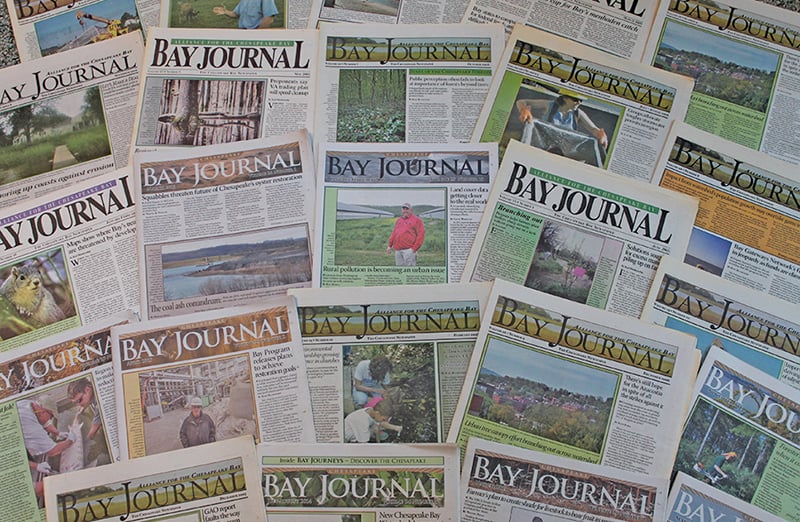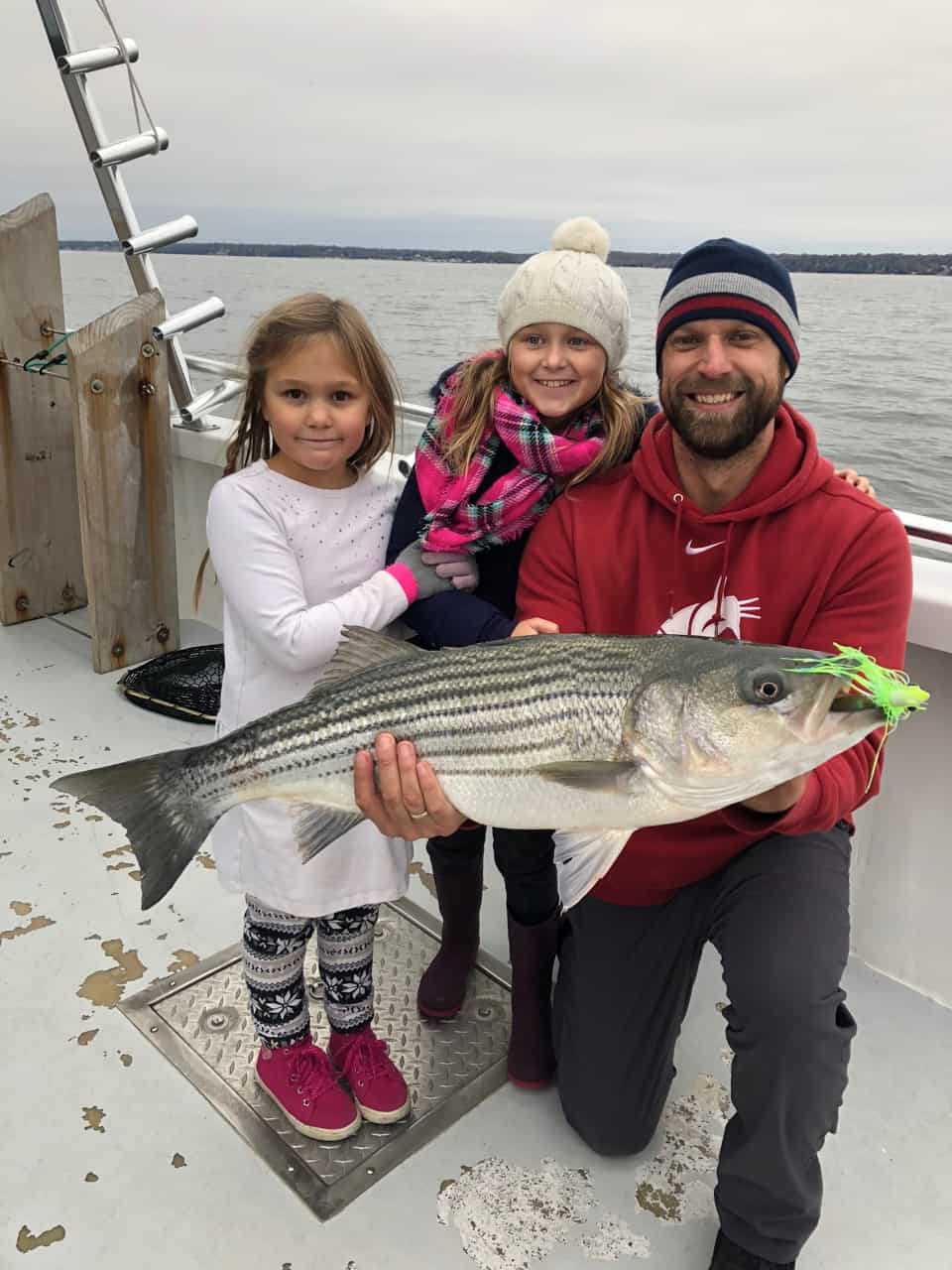The U.S. Environmental Protection Agency (EPA) will restore grant funding to the Bay Journal, a non-profit environmental publication focusing on the Chesapeake Bay cleanup.
Bay Bulletin reported on the EPA’s $325,000 funding cut to Bay Journal, announced last summer. Read the full story here.
Read the Bay Journal’s full story on the restored funding below:
The U.S. Environmental Protection Agency on Thursday announced plans to restore grant funding to the Bay Journal, ending a six-month controversy over its abrupt decision last fall to terminate the paper’s support.
The Bay Journal has reported on issues related to the Chesapeake Bay cleanup for more than 25 years.
“We are pleased that the EPA has recognized the contribution the Bay Journal has made for more than 27 years in informing the public about the Chesapeake Bay,” said Bay Journal editor Karl Blankenship.
The publication had received agency funding through the EPA’s Chesapeake Bay Program office since its inception in 1991 to help inform the public about issues related to the Bay.
“The outpouring of support we have received over the last six months from across the political spectrum speaks to the credibility of our work,” Blankenship said. “We look forward to being able to return our full attention to doing just that — covering the issues that affect the Chesapeake and its resources.”
The action sparked widespread criticism from Bay Journal readers as well as a wide swath of Bay advocates and Maryland’s two senators, who sharply questioned EPA Administrator Scott Pruitt about the action during a Jan. 30 committee meeting.
Both Sen. Ben Cardin and Sen. Chris Van Hollen praised the EPA’s decision to restore funding for the Bay Journal.
“The Bay Journal is a unique, highly trusted publication that serves an essential function in the Chesapeake Bay restoration effort. While I do not believe its funding should ever have been threatened, I appreciate the EPA’s willingness to re-evaluate its decision and correct its course,” Cardin said. “Improving the health of the Chesapeake Bay requires a multitude of agencies and people working together, and today’s decision helps return a measure of momentum to that effort.”
“Today’s move by the EPA reverses a misguided decision to revoke funding for an institution that has helped contribute to the health and success of the Chesapeake Bay,” Van Hollen said. “We made our concerns clear to EPA Director Pruitt, and I appreciate that he heard them. The Bay Journal has done outstanding work for years, and I look forward to that work continuing for years to come. Together, we will keep fighting for the resources and support that the Bay needs.”
Bay Journal Media, the nonprofit organization the publishes the Bay Journal, received a six-year grant award in January 2016, but last August the EPA announced that it would be terminating the grant after just two years of funding, citing an unspecified “shift in priorities.” The cut was initiated by a political appointee who was charged with reviewing the agency’s grant awards and applications.
Reaction was immediate. The Chesapeake Bay Commission, a tri-state legislative advisory committee that helps set Chesapeake restoration policy, wrote to the EPA to say the commission knew of no change in priorities. The Bay Program’s Local Government and Citizens Advisory Committees protested the cut, as did the Chesapeake Bay Foundation and many others.
In a joint letter, Cardin and Van Hollen said that “we are aware of no other examples of high-performing grantees having their EPA funding revoked under similar circumstances, meaning that this action sets a dangerous nationwide precedent.”
Bay Journal Media appealed the decision with pro bono legal support from the DC-based nonprofit Democracy Forward and the law firm of Arnold and Porter.
Democracy Forward and Arnold and Porter filed an appeal on the paper’s behalf last fall, challenging the EPA’s action as inconsistent with the First Amendment and violating the Administrative Procedure Act, among other legal violations.
In the appeal, the attorneys argued that the EPA’s decision was unlawfully motivated for political reasons by a Trump administration appointee, John Konkus. Although he had limited environmental policy experience, Konkus was tasked with managing the agency’s multi-billion dollar grant programs. The attorneys also contended that the EPA had unlawfully terminated the grant without consulting the Chesapeake Executive Council — a bipartisan group of public officials who, under the Clean Water Act, are charged with working with the EPA on the Bay’s restoration.
After the appeal was filed, internal EPA documents were released to the press documenting Konkus’ push to terminate the Bay Journal’s grant, explaining that “the American public doesn’t trust the press” and that the Bay Journal “should not have weighed in” on funding issues by reporting on proposed budget cuts to the Chesapeake Bay Program.
In January, the online news service Energy & Environment quoted former EPA Chesapeake Bay Program Director Nick DiPasquale, who retired Dec. 31, as saying the decision was “totally ideologically driven” and not based on a “shift in priorities” as the agency had stated.
In late January, Cardin and Van Hollen questioned Pruitt about the Bay Journal funding cut during a Senate committee meeting.
“I learned of that decision after the fact,” Pruitt replied, “and I think it was probably a decision that should not have been made in the way it was.” He later reiterated that the grant was “under reconsideration and we are going to deal with it fairly.”
The EPA’s March 1 letter to the Bay Journal announcing the restoration of the grant stated that the change of course was “consistent with Administrator Pruitt’s testimony” that the grant decision should be reconsidered. The EPA action restores the $325,000 in funding the Bay Journal was to receive this year, which is about a third of the organization’s budget.
The EPA correspondence failed to address the constitutional and statutory issues raised about their grant process, choosing instead to simply restore Bay Journal funding and made those issues moot.
“This is a big victory for the free press and the First Amendment,” said Josephine Morse, senior counsel at Democracy Forward and lead counsel for Bay Journal Media. “We are proud to have succeeded in this fight for the Bay Journal to participate in EPA’s grants process free from political interference.”
“We hope this is a wake-up call to this administration that it needs to take politics out of its grant-making process,” said Anne Harkavy, executive director of Democracy Forward. “Normally, it would go without saying that our government can’t attack a newspaper’s funding over the content of its coverage, but unfortunately these are not normal times.”
The EPA’s action was also praised by Rep. John Sarbanes, D-MD, who is co-chair of the Chesapeake Bay Task Force in Congress.
“Administrator Pruitt’s reversal on Bay Journal grant funding is a heartening decision for the entire Chesapeake Bay watershed,” Sarbanes said. “Marylanders depend on the Bay Journal for timely and accurate information about the health of our region’s economic driver and environmental treasure, and we’ll always fight to protect the Bay from senseless politicization and partisan attacks.”




